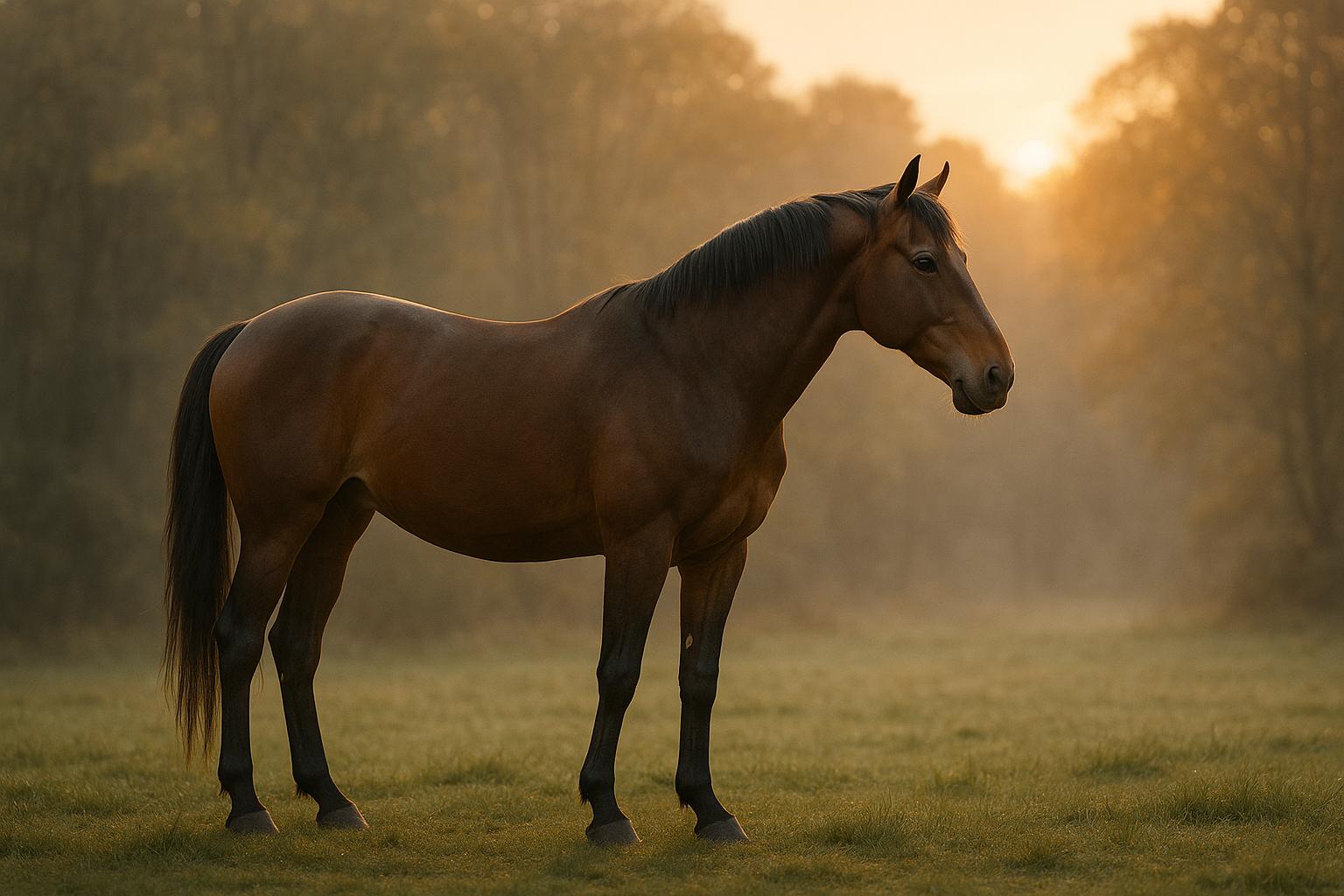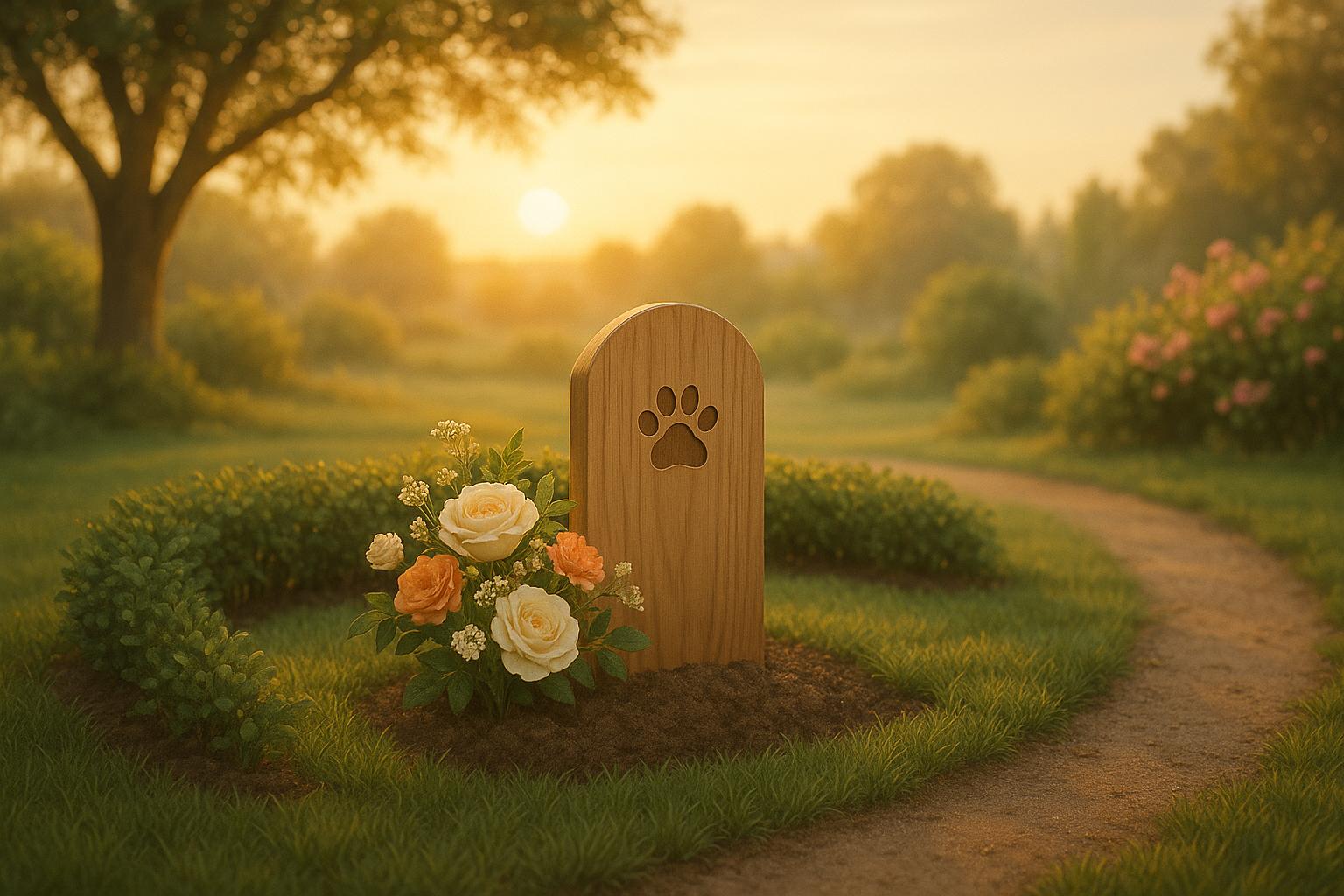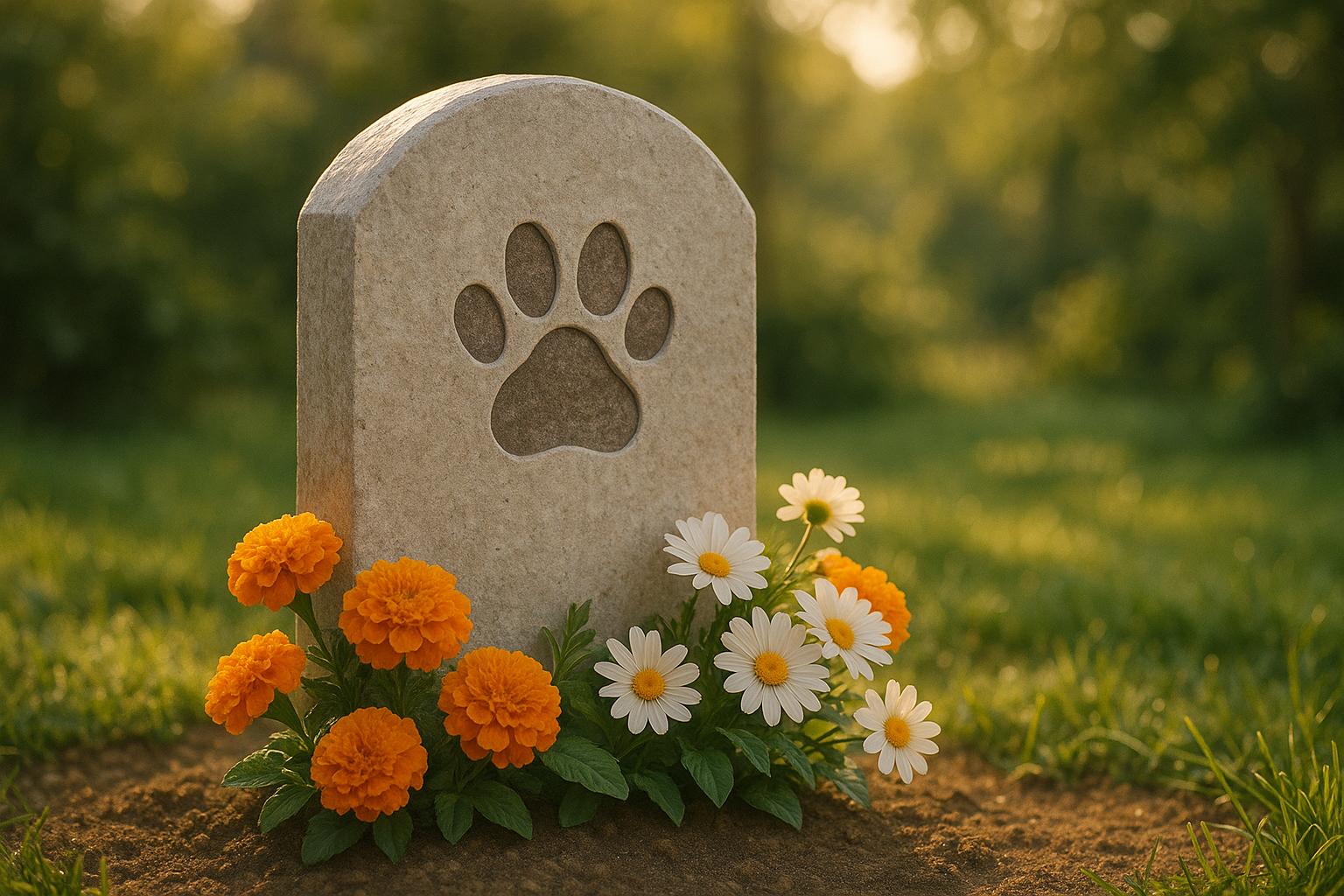Losing a pet can bring about intense feelings of grief and loss that may seem overwhelming. Acknowledging your grief and allowing yourself to mourn the unique bond you shared with your pet is an essential step toward healing. The journey through sorrow is deeply personal, but understanding common phases of grief can help guide you through this difficult time.
You may find comfort in creating memorials or rituals that honor your pet's life. Consider integrating practices that allow you to express your feelings, such as journaling about your experiences or reaching out for support from others who understand your loss. At Animal Aftercare, we provide compassionate support through our 24/7 Pet and Equine Cremation and Euthanasia services, ensuring that you have the care you need during this dark period.
Embracing these tips can assist you in navigating your feelings of loss while you heal. Remember, you are not alone in this experience; seeking out resources and support can make a meaningful difference.
Understanding the Grieving Process
Grieving the loss of a pet is a deeply personal journey. It often involves a range of emotions and stages that can feel overwhelming. Understanding these emotional aspects can help you navigate this difficult time.
Stages of Grief
You may experience various stages of grief as you process your pet's death. Common stages include:
- Denial: You might struggle to accept the loss. This disbelief can serve as a temporary defense mechanism.
- Anger: Feelings of frustration or helplessness may arise. You might direct this anger inward or outward, even toward yourself or others.
- Bargaining: In this stage, you may find yourself wishing for a different outcome. Thoughts of what could have been done differently may dominate your mind.
- Depression: A deep sadness often sets in as you begin to understand the reality of your loss. Physical symptoms like fatigue or changes in appetite may occur.
- Acceptance: This stage represents a turning point where you start to find peace with your pet’s passing.
Recognizing these stages can help validate your feelings.
Common Emotional Reactions
Grieving your pet may evoke a variety of emotional responses. Some people experience profound sadness, often marked by tears or a sense of emptiness. Guilt can also emerge, leading you to question choices made during your pet's life or even at the end.
It's important to remember that your feelings are normal. You might feel isolated since not everyone understands the impact of losing a pet. This can lead to frustration or resentment. Allow yourself to express emotions openly, whether through talking, journaling, or seeking support from friends or professionals.
The Timeline of Grieving
Grief does not follow a strict timeline. Each person's experience varies widely based on individual factors, including the bond shared with the pet. Some may find resolution in weeks, while for others, it may take months or even years.
You may experience ups and downs during this journey, often encountering waves of grief that can revisit you unexpectedly. Finding supportive resources can ease this process. Services like those offered by Animal Aftercare for 24/7 Pet and Equine Cremation and Euthanasia help you honor your pet's memory while providing crucial support during this time.
Understanding that grieving is a personal process is essential. There's no right or wrong way to grieve or a set duration for healing.
Navigating Your Emotions
Grief from the loss of a pet often brings a whirlwind of emotions. You may confront feelings of guilt, deep sadness, and the challenging journey toward acceptance. Understanding these emotions can help you process your grief in a healthy way.
Handling Feelings of Guilt
It's common to feel guilt after the death of your pet. You might question if you did enough for them or if different choices could have changed the outcome. Recognize that guilt can stem from a deep love for your pet.
To manage these feelings, try to shift your perspective. Consider your pet's happiness during their life. Reflect on the good times and positive experiences you shared. Journaling can also help you process these feelings.
Additionally, talk to others who understand. Sharing experiences can reveal that you're not alone in feeling this way. Support groups, like those offered by Animal Aftercare, can provide comfort and community.
Allowing Yourself to Feel Sadness
Sadness is a natural response to losing a beloved pet. Allowing yourself to grieve is essential for healing. Trying to suppress these feelings can prolong the grieving process.
Create a space for your sadness. This might involve setting aside time to remember your pet or expressing emotions through art or writing. Surround yourself with comforting items—photos, toys, or a favorite blanket can evoke cherished memories and help validate your feelings.
Remember, it’s okay to cry. Emotions can be complex, and expressing them is part of the healing journey. Reach out to friends or family members who can provide support without judgment.
Finding Peace in Acceptance
Acceptance doesn’t mean forgetting your pet. Instead, it involves acknowledging your loss and finding a way to live with it. This stage can be difficult, as it requires coming to terms with your pet's absence.
Consider creating a memorial to celebrate your pet’s life. This act can serve as a tangible reminder of your love and bond. Simple rituals, such as lighting a candle or planting a tree, can also provide solace.
As you move toward acceptance, let go of the guilt and sadness. Focus on the joy your pet brought into your life. Working with compassionate providers like Animal Aftercare ensures a dignified and respectful farewell, allowing you to begin your healing journey.
The Role of Self-Care
Taking care of yourself is essential during the grieving process after losing a pet. Self-care can help you navigate emotional challenges and cultivate an environment for healing. Prioritizing self-compassion and implementing specific strategies will support your journey through grief.
Importance of Self-Compassion
Self-compassion involves treating yourself with kindness during moments of pain. Grieving the loss of a pet can evoke a range of emotions, from sadness to guilt. Acknowledge these feelings without judgment.
Understand that it’s okay to mourn deeply. Recognizing your emotional state permits a more genuine healing process.
When you practice self-compassion, you create a safe space for your feelings. This mindset allows you to gradually heal and find solace in your memories.
Self-Care Strategies
Implementing self-care strategies is crucial in managing grief effectively. Prioritize activities that promote your emotional and physical well-being. Here are some practical strategies:
- Establish a Routine: Maintaining a daily routine can provide structure, helping you feel grounded.
- Stay Connected: Reach out to friends or groups who understand your loss. Discussing your feelings can be cathartic.
- Engage in Creative Outlets: Expressing emotions through art, writing, or music can facilitate healing.
Consider professional support if you're struggling. Animal Aftercare offers compassionate guidance and resources, especially during the initial stages of grief.
Meditation and Mindfulness
Incorporating meditation and mindfulness can significantly alleviate grief-related stress. These practices encourage you to stay present in the moment and connect with your feelings.
Begin with short meditation sessions, focusing on your breath. This can help center your thoughts. Gradually increase the duration as you become more comfortable.
Mindfulness involves observing your emotions without becoming overwhelmed. Acknowledge your pain, but allow it to ebb and flow.
Regular practice fosters emotional resilience. This is vital when facing the profound grief from losing a pet. Always remember, Animal Aftercare is here for you, providing 24/7 support and compassionate care during such challenging times.
Creating a Legacy for Your Pet
After losing your beloved pet, creating a legacy can be a meaningful way to honor their memory. This approach acknowledges the unconditional love they provided and helps you navigate your grief.
Memorializing Your Companion
Establishing a memorial for your pet allows you to celebrate their life. You might consider holding a small gathering with close friends or family where you share stories and memories. Creating a dedicated space at home featuring photos, toys, and mementos can also provide comfort.
Another option is to establish a memory garden. Planting flowers or a tree in their honor can symbolize life and renewal. Artfully arranging their favorite items in a shadow box or scrapbook can serve as a lasting tribute.
Consider donating to an animal shelter in your pet’s name. This not only honors their legacy but also helps other animals in need, reflecting the love you shared.
The Concept of the Rainbow Bridge
The idea of the Rainbow Bridge provides solace to many pet owners. This comforting concept suggests that there is a special place where pets wait for their owners after passing away. It symbolizes a peaceful reunion.
According to the legend, those who have lost a pet can imagine them playing happily until they are reunited. This narrative helps soothe feelings of loss and underscores the bond shared with your animal companion.
Expressing your feelings about this concept through journaling or creative outlets can further enhance your healing process. Remember that your bond transcends physical loss, reflecting the enduring legacy of love between you and your pet.
For those seeking compassionate aftercare options, Animal Aftercare offers 24/7 pet and equine cremation and euthanasia services. Your pet deserves the best, and we provide dignified care during this difficult time.
Finding Support and Resources
Dealing with the loss of a pet can be isolating, but support is available through various channels. Understanding the options for professional assistance, community initiatives, and support groups can help you navigate this difficult time.
Professional Support Options
Seeking professional help can provide you with the tools to manage your grief effectively. Many therapists specialize in pet loss and grief therapy, offering tailored support.
You may also consider pet loss hotlines where trained counselors can lend an empathetic ear. These services are often available 24/7, making them a convenient choice when emotions peak unexpectedly.
Animal Aftercare understands the depth of your grief and provides compassionate guidance through our support services. Our team is available around the clock to assist with decisions regarding cremation and euthanasia.
Community and Online Resources
Community resources play a vital role in providing connections during your grieving process. Local animal shelters and veterinary clinics often host support groups for pet loss, creating safe spaces for expression.
Online platforms also offer valuable resources. Websites dedicated to pet grief provide articles, forums, and even virtual support groups where you can share experiences and coping strategies with others facing similar challenges.
Utilizing these communal resources can foster a sense of belonging and understanding. Consider exploring local support groups, many of which are free and allow for open discussion.
The Benefits of Support Groups
Support groups for pet loss offer a unique environment to share feelings with those who genuinely understand your pain. These gatherings can provide emotional relief as you connect with others who have experienced similar losses.
Participation in support groups also encourages healthy coping mechanisms. Members often share their journaling experiences, which can be a therapeutic outlet for processing grief.
Regular attendance can help establish a routine and promote ongoing healing. Whether in-person or virtual, these groups are instrumental in framing your mourning process positively.
Animal Aftercare is committed to supporting you through this journey, providing resources and connections to support groups that can aid in your healing process.







